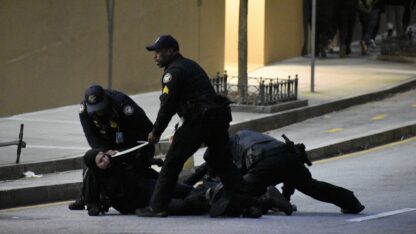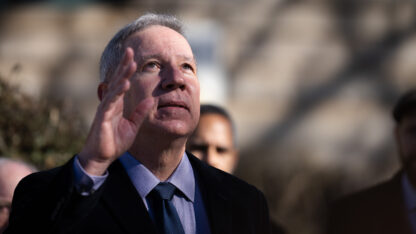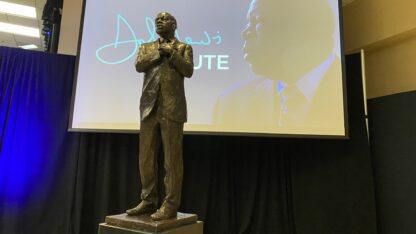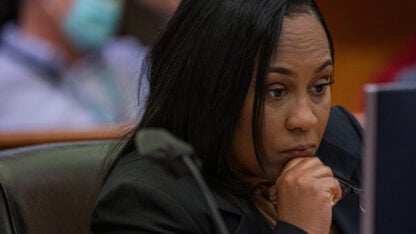As tensions continue around Atlanta training center, a report proposes thousands of acres of parks and trails
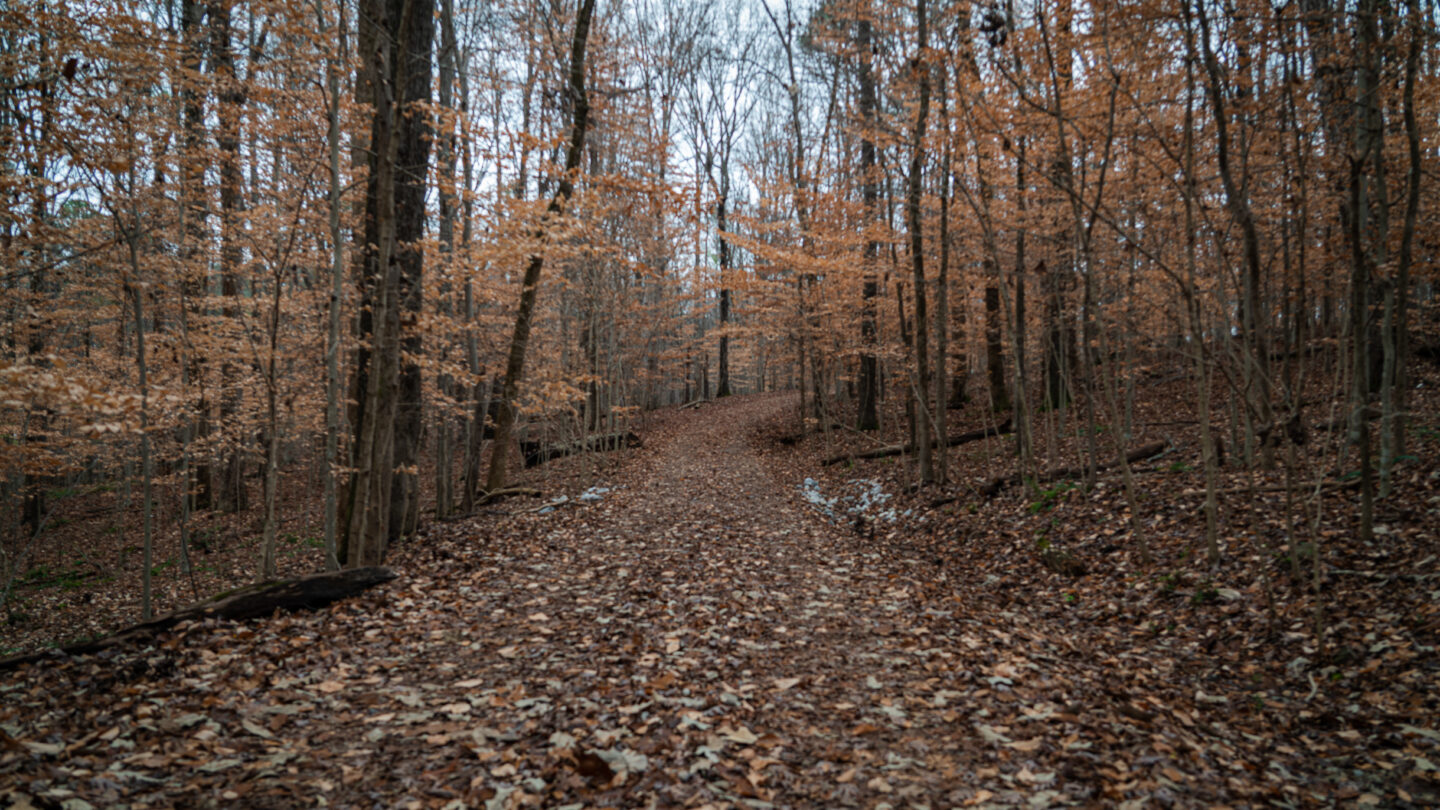
The Atlanta neighborhood of South River Gardens is a little off the beaten path. At the southeastern tip of the city, its residential streets straddle the perimeter, abutting Clayton County.
“For years, nobody seemed to know that we were even out here,” said Shirley Nichols. She would know; she’s lived in the neighborhood for 47 years and is the president of the South River Gardens Community Association.
“It’s a beautiful area,” she said. “We have lots of trees, you know … we’re in the forest.”
But the community is somewhat surrounded by less beautiful things, like a landfill, busy roads and lots of truck parking.
An idea that’s been rumbling around for years and now getting a new push from the Atlanta Regional Commission and The Nature Conservancy aims to prioritize the people and the nature in the area over the trucks and the trash.
Supporters of the South River Forest vision say it’s still one of Atlanta’s best chances to preserve its famous urban forest, even as controversial land-use decisions in the area about Atlanta’s public safety training center and DeKalb County’s land swap with a private developer have become flashpoints.
The forest in the city
There are deep, dense woods woven through and around the neighborhoods in Southeast Atlanta and the southwest end of unincorporated DeKalb County. They’re places where people can get away from the sounds of traffic and the city but still be inside I-285.
The idea for the South River Forest is to link current parks and trails with new ones to create not one giant park but instead a network of forests and paths. According to the proposal, there’s as much as 3,500 acres of green space that could be included, an area larger than Stone Mountain Park.
“To have a big urban forest this close to downtown — there’s no other place we could do it. It’s all spoken for,” said Ryan Gravel, the urban planner who thought up the BeltLine and who’s now working with The Nature Conservancy on the South River Forest idea.
There are already parks in that part of the metro area, including the City of Atlanta’s Lake Charlotte Nature Preserve and DeKalb County’s Constitution Lakes. But it’s an area more dominated by landfills, correctional facilities, wastewater treatment plants and truck yards. The South River has been on the receiving end of millions of gallons of untreated sewage over the years.
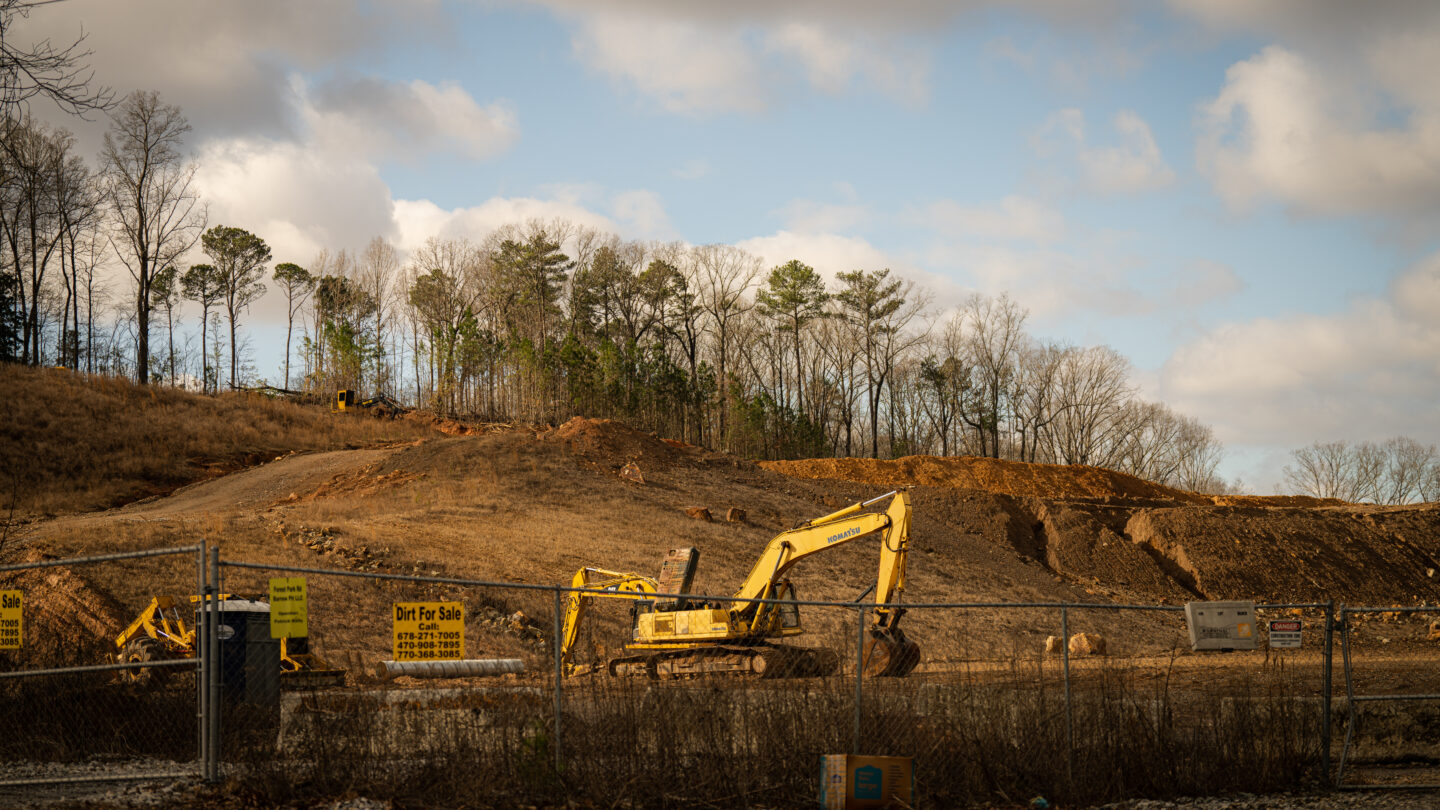
“This is an area of Atlanta that has, for generations, been disinvested in,” said Deron Davis with The Nature Conservancy, pointing out that the neighborhoods are largely home to Black residents. “This is a chance for the City of Atlanta and DeKalb County to right some of those historic wrongs.”
The South River Forest report
The Nature Conservancy and the Atlanta Regional Commission recently released a report on the South River Forest, laying out a vision after a year of collecting community input. It follows a 2017 document from Atlanta’s Planning Department that proposed a 1,200-acre forest preserve in the area.
The new report includes a list of recommendations, including that Atlanta and DeKalb work together on a detailed plan for the project, acquire property for parks and establish a South River Forest Management Authority. It recommends addressing gentrification, increasing community engagement and developing a small business incubator.
It also tackles the green space on the Atlanta Prison Farm property, which is the location of the public safety training facility, referred to as cop city by opponents. The report suggests creating a 445-acre park there, combining 265 acres of prison farm property that City Council had committed to turning into a park when it leased land to the Atlanta Police Foundation with another 180 acres of land that the city owns nearby.
The report comes out as tensions around the public safety training facility and the DeKalb County land swap have only increased since state troopers shot and killed a protester in the forest in January after one of the troopers was shot.
The training facility and land swap account for roughly five percent of the potential green space in the entire South River Forest area.
“There’s a lot of unfortunate things that exist in the South River Forest that I wish we could go back 40 years and undo, but we can’t,” said Gravel. “So we’re making the most of what we’ve got, and it’s a beautiful vision.”
Planning for change
Nichols, who’s worked as an advisor on the South River project, as well as serving on the community advisory board for the public safety training facility, said as new people and possibly new parks come to her neighborhood, she wants to make sure it doesn’t become unaffordable for those who live here now.
But, she says, the people — and the investors and developers — are already coming. And in her view, it’s her area’s turn to get something nice.
“You know, all over Atlanta, the city has been building parks and preserving green space, and they’re just now getting to us,” she said. “We’re like last on the totem pole.”
Nichols, who’s on the community advisory board for the public safety training center, is also an advisor on the South River effort.
Last year, she led a group on a walk in the Lake Charlotte Nature Preserve. The relatively new city park was once slated to become a landfill. Nichols worked for decades to keep that from happening.
Camilla and Vernon Barnes joined Nichols’s tour. The couple lives nearby but had never visited Lake Charlotte before. They were thrilled with it — and with the possibility of adding more parks and trails in the area.
“Places you can walk to and have fun,” Vernon said, contrasting his experience in Georgia to Brooklyn, where he moved from 20 years ago. “In the city, you had a lot of stuff you can do, and a lot of things that kids can do. When I got to Georgia, I didn’t see the same thing.”
Another attendee on the Lake Charlotte tour was Joe Santifer, who’s also involved in the South River Forest project. Santifer lives closer to the public safety training center site. He’s opposed to that project. “It’s just the wrong location,” he said.
But he said he feels like people on both sides of that fight can agree on the South River Forest.
“It’s magnificent to think you have this kind of green space inside 285,” he said. “I lived in Buckhead for 12 years. There’s nothing like this.”
